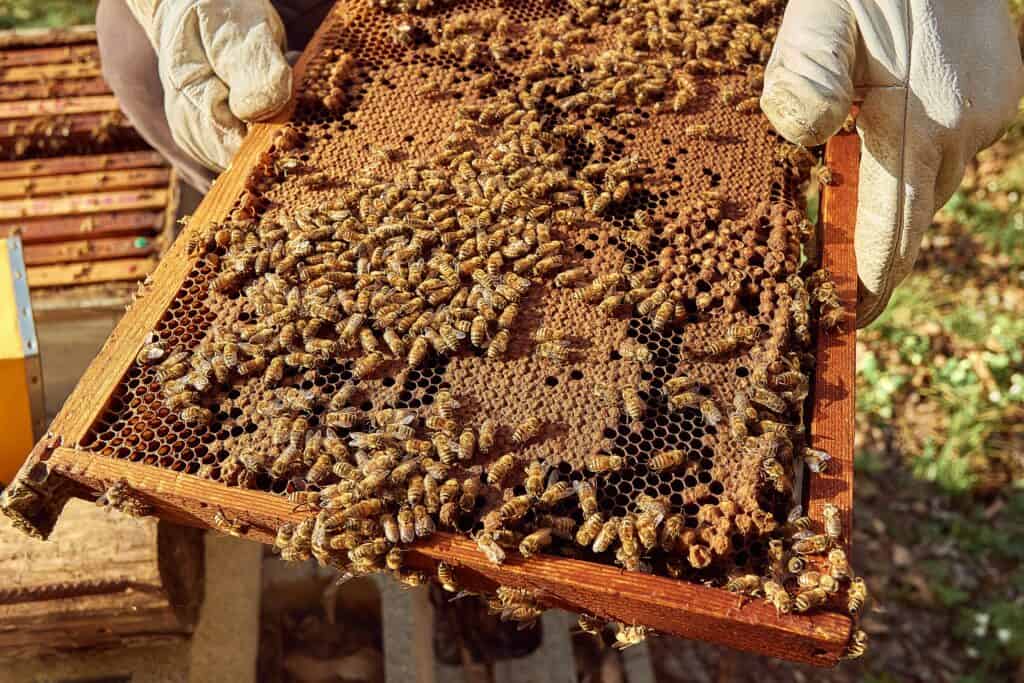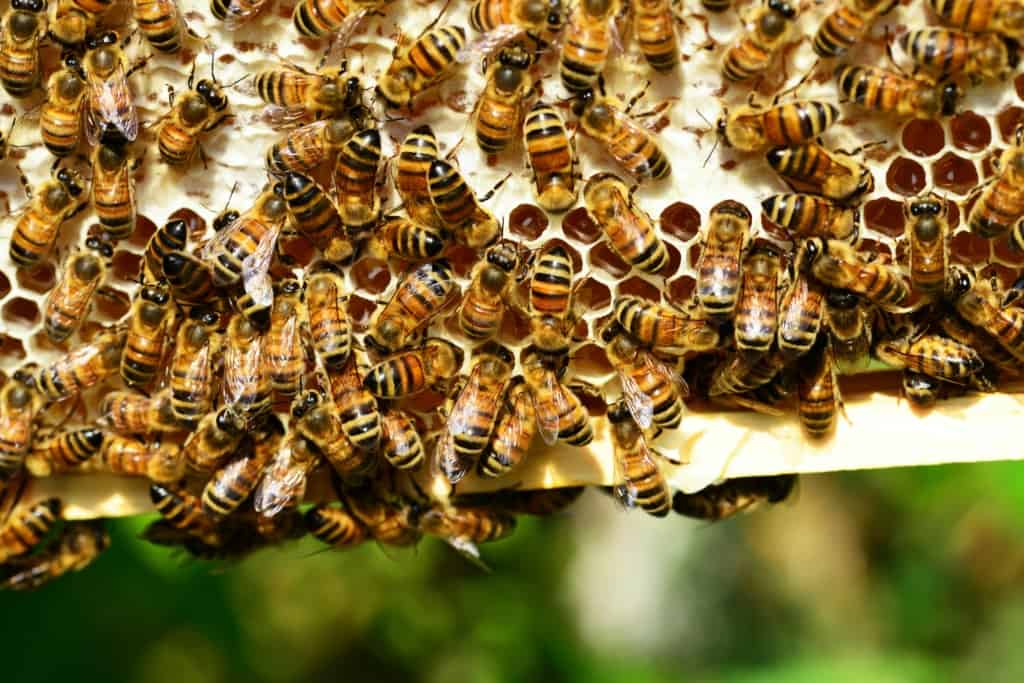As the world’s oldest, natural sweetener, honey has a fascinating history and a variety of uses in the modern world. From spreading on toast, using to creating tasty dipping sauces to adding into herbal teas, honey remains a staple ingredient in homes around the globe.
People are becoming increasingly sceptical of chemicals and chemical additives in their food. This has meant that more and more shoppers choose to buy organic items from the store. This is most likely due to the wide availability of information from the internet as well as stories in the media about the damage chemicals and pesticides can potentially do to our health.
So, what exactly is an ‘organic’ product?
Organic food and drink are produced using farming methods that avoid the use of pesticides, man-made fertilizers and synthetic chemicals.
Any food that is labelled as organic must be free from synthetic chemicals including additives, colours or sweeteners.
You may be wondering, where do bees make all of this delicious honey and who oversees it:
- Honey bees collect nectar from flowers and plants and this is broken down into a sugars and stored inside their honeycomb
- Sweet, liquid honey is made by evaporation that happens inside the honeycomb
- Beekeepers have to periodically remove the honey combs, scrape away the wax that bees use to seal in the honey in each cell and extract it using their tried and tested processes
- Some honey is made on a huge scale and contains many hives
- Beekeeping is a hobby for some, who produce small amounts of honey either for themselves and their friends or family, or maybe to sell at local fairs or school fetes.

Organic honey, raw honey and standard honey – are they all the same?
- Organic honey has to be 100% honey. This means it cannot be blended with corn syrup, sweeteners or any other kinds of bulking agents.
- For honey to be listed as ‘organic’ (as with other food stuffs) it has to have been independently certified by a government approved body, such as the Soil Association.
- Raw honey is unpasteurized honey. This means that it is not heat treated above 45C. Raw honey also does not have the pollen filtered out.
- Standard honey that you can buy on supermarket shelves is sometimes referred to as ‘pure honey’. This simply means that nothing is mixed in with the honey (such as cinnamon or ginger) and does not indicate that it is organic.
- Honey labelled as ‘pure’ can still have been produced using chemicals, or by bees who are fed a sugar solution and will often have been filtered or pasteurized.
Key differences: Raw honey is not pasteurized and retains its pollen. Organic honey is certified and free from chemicals.
Honey is full of health benefits including antibacterial properties. To varying degrees, all honey contains these properties, but the heat-treating process used by honey companies that line the supermarket shelves can kill off a lot of the nutrients that benefit our health.
To select honey with bacteria-killing properties, you need to find one with an activity rating printed on the label. This is usually a number, such as 10+ or 15+ – a common example is Manuka honey.
If you want to benefit from the active properties in the honey you should select:
- Raw honey or raw organic honey
- Choose raw honey over supermarket, mass produced honey
- Choose organic honey over raw honey, where available
- If you really want the best honey, go for organic, active honey

Honey bees present real difficulties to farmers who wish to make organic honey. This is because a bee might need to make a million flower visits to produce enough honey to fill a standard jar! If you are buying a jar of honey that has been certified organic, you can be sure that a lot of hard work and dedication has gone into creating it, by both the amazing bees themselves and the people who harvest it.

